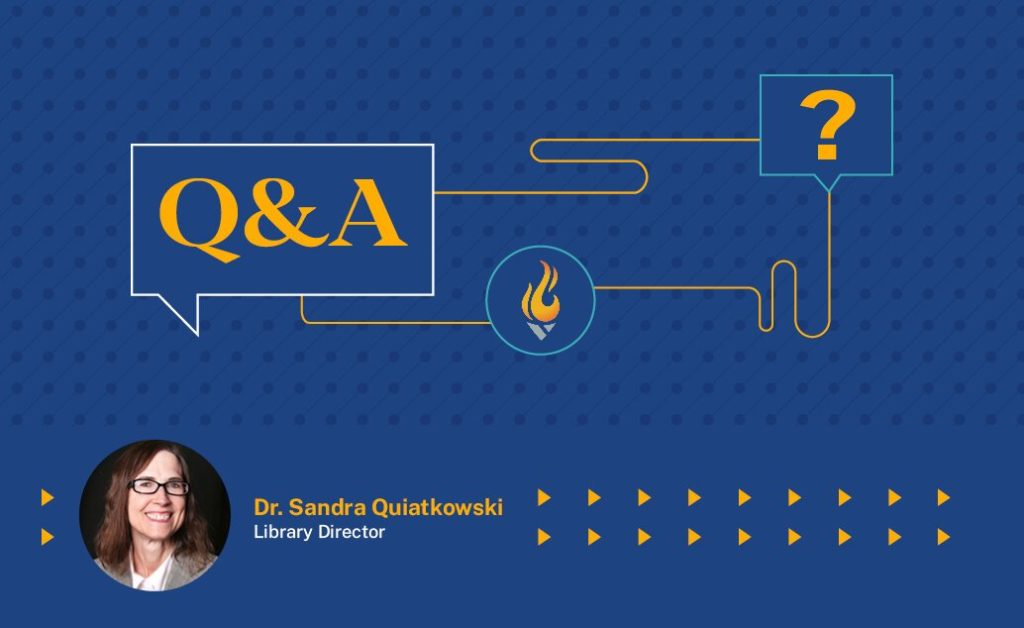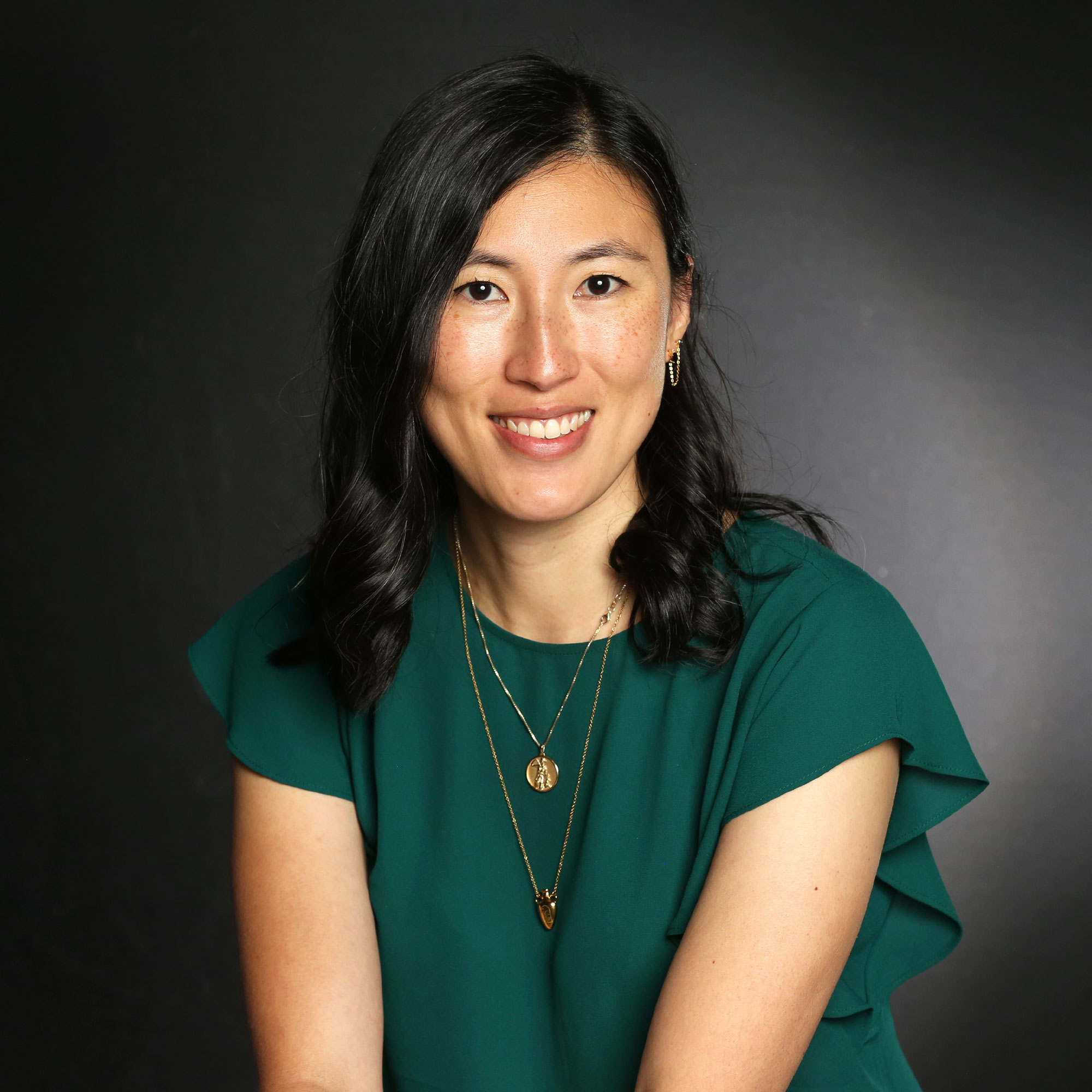
It’s been thirteen years since Dr. Sandra Quiatkowski walked the halls at King Faisal Specialist Hospital and Research Centre in Riyadh, Saudi Arabia, but one moment is indelibly imprinted on her brain: A doctor was attempting to treat a patient with a rare disease and couldn’t find any literature on it. Sandra began mining databases for answers and dug up a single article. In French.
It was one of those marvels that reminded the ACE library director why she went into library and information science. The past three decades have taken the Ph.D. from the now-defunct Lockyear College to Marian University Indianapolis, from Riyadh’s Kingdom Schools to King Faisal Specialist Hospital, and from there to King Fahad Medical City, where she started a medical school library from scratch and ran an office “almost as busy as the ER.”
In 2011, she landed at ACE, where she continues to help students find their way, one e-book at a time.
American College of Education (ACE): What does an average day look like for you?
Sandra Quiatkowski (SQ): Oh my gosh – probably responding to student questions, whether they come from the live chat or email or the Ask a Librarian link in one of the databases. We also have a special SMS number so that they can text me. I also spend a lot of time in the inter-library loan system because we get requests from other libraries in addition to requests from our students when they want to receive an article that isn’t in our collection. I have to check that daily — several times usually, if I want to offer quick service. And then there are also times where I’m helping faculty when they build courses and I’ll help get readings for their courses.
ACE: You’ve had quite the career in library science, managing physical and digital collections at several institutions. How does working at ACE compare to your previous posts?
SQ: I think teaching is a huge part of it regardless of where you are or what type of library you’re working in. So whatever questions I receive daily, I try to incorporate some kind of teaching into my response so that maybe next time they’ll learn from that.
I think the main difference is that we are 100 percent online, whereas before I was always in a physical library even if we did have online resources and even if we did have a huge digital collection. The way that you interact with students changes when you’re online, so I do a lot more through email and live chat, although I do still receive a lot of phone calls from students.
ACE: And how does ACE compare in terms of the scope of resources and navigability?
SQ: Well, of course, we started specifically with education-related sources, so we’re slowly building up into other areas like sociology, business, technology. And, because of the bachelor’s program [in healthcare administration], we added academic databases that included biology and chemistry, so our collection now is pretty well-rounded.
The students probably are overwhelmed when they first get started, because they have to learn to navigate Canvas and all of the resources within it, so I think they have a lot to learn when they come here to ACE. I try to help them by showing them different ways to access resources, and I do a lot of Zoom meetings so they can show me what they’re doing, and I can show them what they should be doing.
ACE: In your opinion, what are some of the most underutilized resources in ACE’s library?
SQ: Mainly some of the resources on the LibGuides. We have an FAQs section on there with a lot of common questions I’ve received since I started in 2011. I just summarized them and put them in with an answer. We also have a “How to? Guides” page and our “Subject Guides” — some of which have the required textbooks that students need to read or relevant databases specifically for their programs. I think a lot of students still are not using [those resources] as much as they could be.
I think the LibGuides is a great place to go, because it’s so much easier to navigate and it’s a one-stop shop to know about the library, whether they have a question or need information. It’s all there.
Plus, the homepage lists all the different ways to reach me, and on the “Ask a Librarian” tab, it has the live chat, my phone number, the library email and the SMS number.
ACE: Any encouraging words for new students who may be nervous or embarrassed to reach out?
SQ: I would want them to know they’re not the only one asking that question, so they shouldn’t feel shy. I would rather they contact me and get it cleared up so they won’t have that question, and they won’t be behind in classes. I always tell students, “Don’t wait until the time gets desperate!” Contact me as soon as you have any question so that we can nip the problem in the bud.
I’m willing to help, and I don’t just do 8:30 am to 5:30 pm. I work different hours — I work over the weekend sometimes. I’m always trying to catch questions from students so I can help them as quickly as possible.

